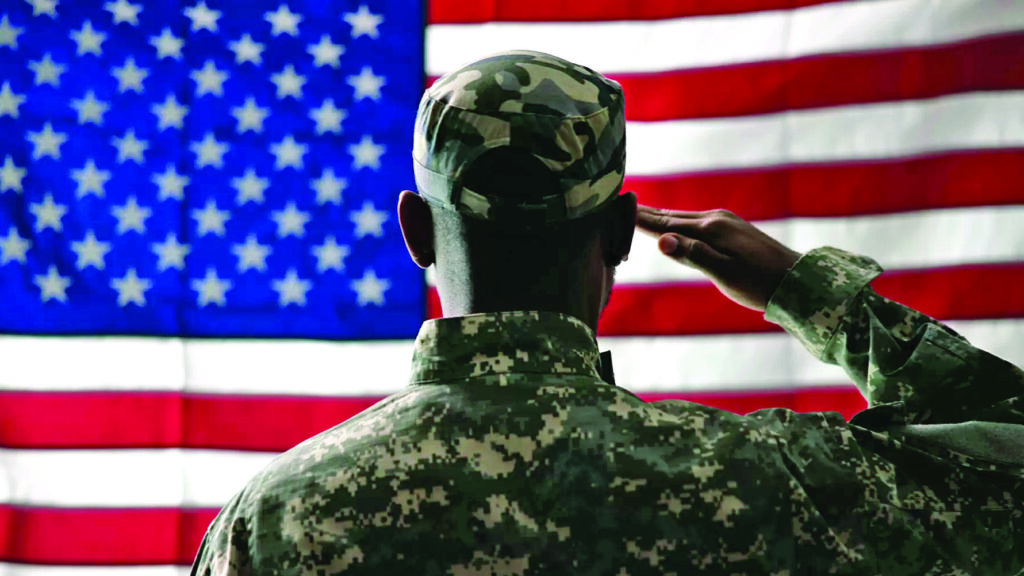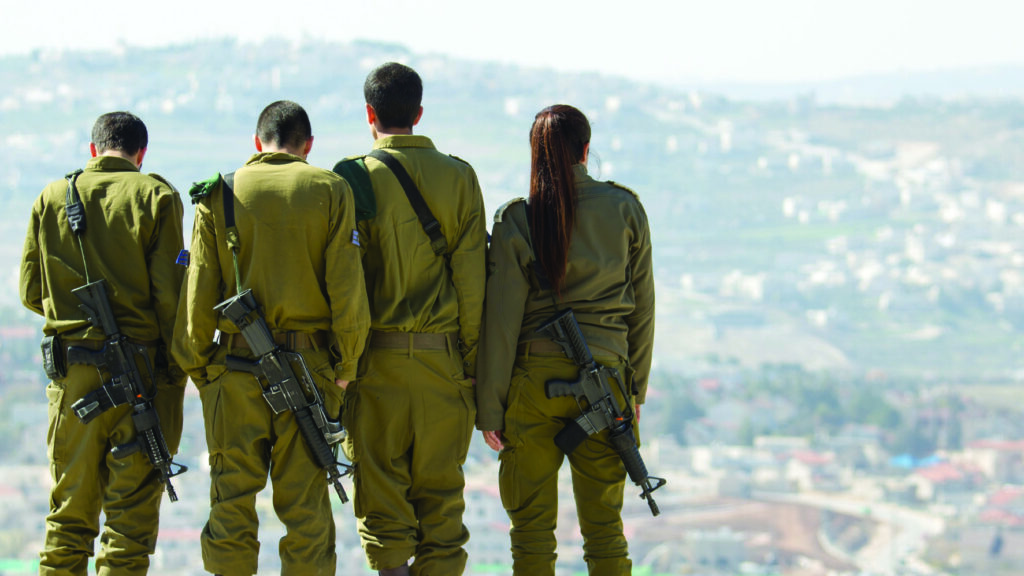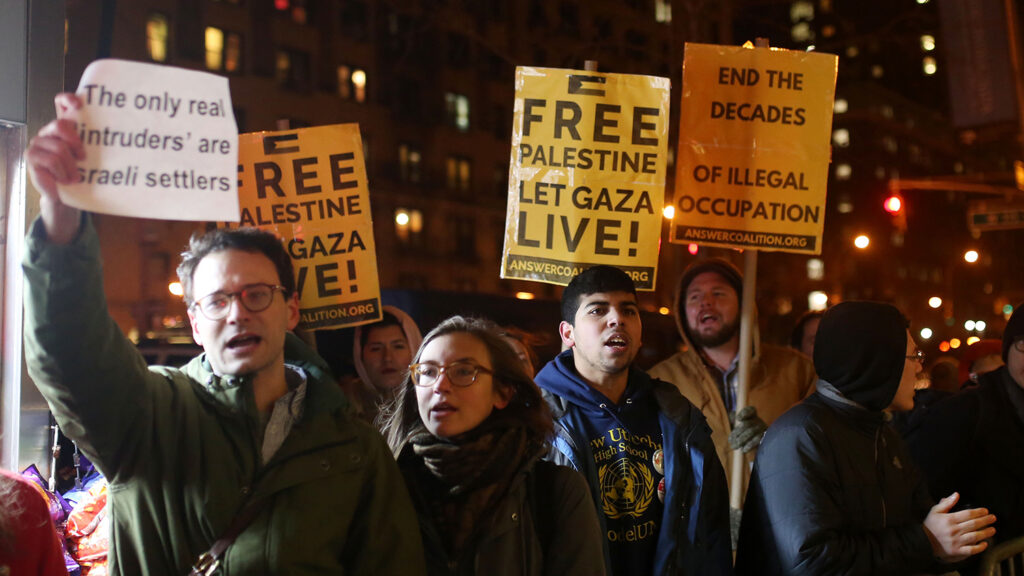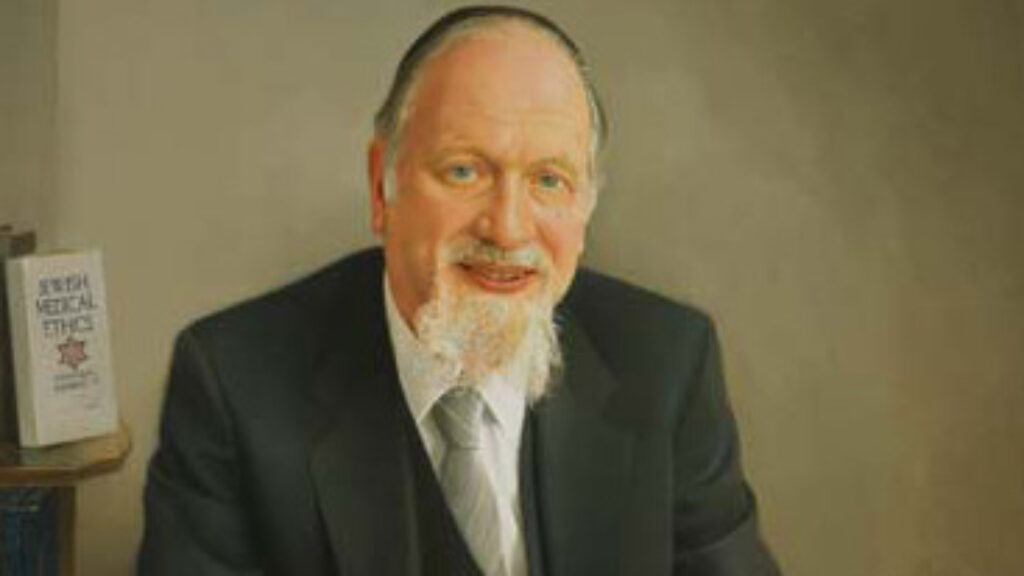The Greatest Gen-Z-eration
BY FRANKIE TORKIN
Many adults look at my generation, Gen Z, with suspicion. They see us as always on our screens with little passion to get up and make a difference. Well, here are two inspiring, yet contrasting stories of young Americans who decided to stand up for Israel and join the fight. Avrumi Davis spent his whole life considering the opportunity and quickly joined the Israel Defense Forces (IDF) upon reaching adulthood. Moshe Sopher went out on a limb this summer and decided to join the IDF. Both are supreme examples of Americans who have gone to fight for our homeland, Eretz Yisrael.
What were you like in high school, and was Israel and the IDF an option back then?
Avrumi: I grew up in a Tzioni Dati—religious Zionist—community, a world of religious Zionist values, celebrating Yom Ha’atzmaut, and talking about Israel as the place to be. That’s just the way I was raised, and I had some aunts and uncles that made aliyah over the years. So I always had a connection to Eretz Yisrael. At the beginning of twelfth grade, I was talking with a good friend of mine and we were discussing Israel. And, you know what? We could go to Israel and stay there—and that’d be crazy, but that’d also be awesome. That was the first time when it really became physical, an actual real life thing, not just an idea. It became an actual something, there was substance. Aliyah became something that I could do. Next year, I could go to Israel and just stay there for good.
Moshe: Honestly, in high school, no it was probably not something that I was really thinking about. But the first time that I ever thought about drafting was when my family lived in Israel for two years when I was six in 2007. When I was a little kid living in Israel, the obvious thing to do was you grow up, you become a chayal, and it’s just a cool thing. Then we moved back to America and I kind of put it in my back pocket and I thought, all right, if the time comes and it’s something I still want to do, then I’ll think about it. But that’s where I started, and then I kind of put it back in my pocket for a while. I didn’t really think about it throughout high school. I wasn’t against it at all. I was just very adamant on living in Manhattan. It was something that I always wanted to do in my life.
What was your journey from being a high school student to deciding on enlisting?
Avrumi: This was not a decision I could make from America. I needed to go to Israel and see if I liked it, if I connected to Israel. It’s not a simple decision. I knew I needed to come to Israel and test the waters before I fully decided if I would stay. When I got to Israel, at the beginning, I spoke with one of my rabbis in yeshiva and he basically said, for the first half of the year, don’t really think about it. Focus on learning and, you know, this is obviously a very important thing that you need to think about, but it’s not something which is a time pressing decision during your first year. It’s a decision you can come to as late as the beginning of Shana Bet (second year), in terms of being able to draft with the guys from the yeshiva. Then it was in about January or February of Shana Aleph (first year) that I sat down and spoke with another one of my rabbeim in KBY (Yeshivat Kerem B’Yavneh). I sat down with him again and he gave me some tools on how to make my decision. I took those tools, and I went and made my decision that I was going to stay in Israel for sure. That Pesach of my Shana Aleph was the first time I kept one day of yuntif.
Moshe: My family is very artistic. I took AP Studio in high school and I was very focused on photography and going to art school, and so I went to Parsons. It’s still a career that I want. Then the war broke out, and I thought well, this is just kind of perfect. I’m graduating right now, there is a war, and there is an opportunity for me to draft into the army and actually be useful. I still feel strongly about this. It’s still something I’m driven to do. Obviously it should go without saying the war is a terrible thing, but if the war hadn’t broken out, I don’t know if I would’ve made the decision to draft. It was kind of like, well, because there’s a war they need all hands on deck. They need all the help they can get. So it was actually really a last-minute decision. I was on a Zoom call with my Nefesh B’Nefesh advisor, and it kind of hit us. We just thought, let’s do it. Within the next couple of days I said I’m going.
How did your family react to your decision to enlist?
Avrumi: My close friends and family already had a feeling that I was going to stay and draft. The way different people talk about things—the way people see different things—sometimes can be a giveaway as to where they’re headed. I was always very Zionist. I was always very vocal about Eretz Yisrael being the place to be. Throughout Shana Aleph it was clear that I was one of the guys that was where I’m supposed to be. That’s when I made the decision, and it wasn’t such a surprise. My parents already knew what it was like because it was something that was already present in the house. When my older brother decided [to make aliyah], I asked my father how he felt about it, because he was leaving now. He wouldn’t be in America, he’d be far away. So I asked him about it knowing that I was also already going to do the same. He basically said, we raised you with values that we believe in, and to see you take the values that we raised you with, Eretz Yisrael being the place for Jews, you taking that and marching forwards with it, it shows that I succeeded as a father. I always remember that conversation with my father and then I knew that when I decided, they would be behind me.
Moshe: I think they were all definitely surprised by it. I was really committed to this life of pursuing photography and being a photojournalist. I had always been so obsessed with New York and I think everyone was so used to that side of me. They were like, whoa, this is a huge 180 that you’re making. I’m not the type of person who’s super intense and aggressive. I’m very chill, I like to have fun with my friends and I like to joke around a lot. So I think it was very unexpected of me. In fact, I don’t think my family really believed me until I actually boarded my plane. In terms of the choice that I’ve made to go into combat and get into one of these special units, my mom is not so happy about it, especially because there are countless other important roles in the army that need to be done. I decided on Unit 669. This is the unit that gets called in to fix crises—hostage rescue, injured soldiers—it doesn’t matter the situation, Unit 669 is trained to handle it. This is the piece that was upsetting to my mom.
Considering you are an American coming in and training with Israelis, does it ever feel like there is some kind of barrier due to the difference in backgrounds?
Avrumi: The yeshiva I drafted with, Kerem B’Yavneh, is an Israeli yeshiva with an American program. Every year there are between 40 to 50 Americans and 40 to 50 Israelis. A lot of the Americans, for the most part, go back to America after Shanah Bet. By the end, we were four guys that got drafted together. From all of KBY, we were roughly 25 guys—four of us were Americans and about 20 Israelis. At the beginning of the second year, I decided I was going to switch to an Israeli shiur. Since it was after COVID-19 had broken out, Israel had this system of capsules. Each separated from the other to prevent exposure between capsules. Since I switched to an Israeli shiur, it also meant being in an Israeli capsule, which meant that my American friends from Shana Aleph were in different capsules. This meant that I only saw the Israelis inside of my capsule. Basically, I spent the vast majority of my time with the Israelis that I would go on to draft with. Which I think was a very beneficial thing because by the time we got to the army, I was very close with some of them, despite some of them not even speaking English. Moshe: We all have the same goals and intentions, which cancels out any weird feelings. We’re all here for the same purpose, so we all put our heads down, we work together, and we have fun. It’s awesome working alongside these kids, but it’s very serious and it’s very intense. Actually, when I introduced myself to these kids, or people in general, they were like, what are you doing here? You’re 23 years old. You’re from New York. Why would you give up this amazing life in New York to come here and be in the army? They’re shocked, surprised, and confused as to why I would be doing this. On my end, I think I’m here for the same reason as my fellow soldiers. I tell them I’m here to do what you guys are doing. Let’s get to work.
Suggested Reading

A New Psychology for the American Military
BY MEIRA LUTCH In 2024, America’s military is projected to reach its smallest size since 1940. One often-cited reason for this contraction is the requirements that must be met in…

Reframing the Debate Around Israel’s Obligations to Gazan Civilians
BY JACOB SHAYEFAR “Remember what Amalek did to you along the way when you came out of Egypt. When you were weary and worn out, they met you on your…

Regaining our Power Through Knowledge: The Solution to Rising Anti-Semitism on Campus
An emotional connection to our Judaism cannot be our only solace. Knowledge is the solution to the problem Jewish students face today.

“If Only My People…” Zionism in My Life
BY GIDEON ROSEN “And I will give you as a light for the nations so My salvation will reach the edge of the earth” (Isaiah 49:6) In his book, “If…